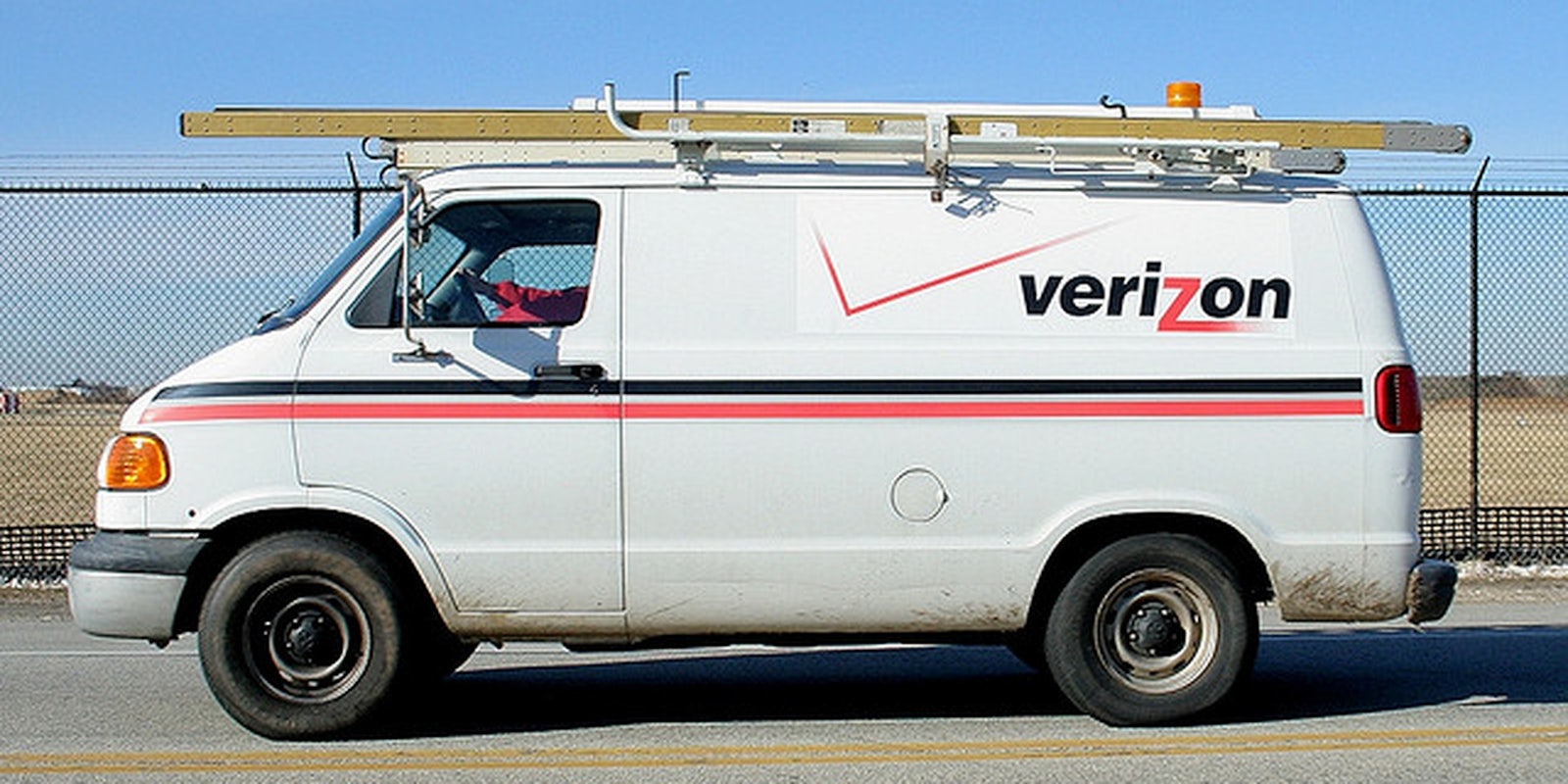If you’ve ever tried to dispute a charge on your Verizon bill, you know that they are an outfit not to be trifled with. Even worse, the company’s brought that tenacity to bear on a federal appeals court and appears to be winning judges over with its case against the principle known as net neutrality.
In its lawsuit against the Federal Communications Commission, Verizon alleges that by enforcing net neutrality—requiring that Internet service providers to treat all data equally and not slow down or otherwise obstruct the flow of certain content—the FCC acted outside its purview, trampling the company’s First and Fifth Amendment rights.
In the suit’s language, there is “no evidence of a problem in need of industry-wide regulation,” and the FCC’s net neutrality order, adopted in 2010, is “arbitrary and capricious.”
Even while emphasizing the “prophylactic” nature of the rules, the FCC attempted to amass a supposed industry-wide “record of abuse” … based on four isolated incidents of alleged blocking over a period of six years—during which time end-users successfully accessed the Internet content, applications, and services of their choice literally billions of times.
Much of Verizon’s argument rests upon the idea that the FCC is unequipped to regulate the Internet and had misapplied rules used in telephone systems. As the New York Times reported:
[T]wo judges appeared deeply skeptical that the FCC had the authority to regulate the Internet in that manner.
The two jurists, Judge Laurence H. Silberman and Judge David S. Tatel, said that the agency’s anti-discrimination rule—which requires an Internet service provider to give all traffic that travels through its pipes the same priority—illegally imposed rules meant for telephones on the infrastructure of the Web. The FCC itself disallowed the telephone-type regulation a decade ago.
If Verizon can get the order overturned, they would be able to charge certain clients for VIP “fast lanes” that deliver their content more speedily to users. The FCC has suggested this could prove harmful for small startups without much capital, as well as ordinary Internet users, citing “multiple incidents of broadband providers interfering with their customers’ ability to use Internet services, from file sharing services to Internet-based telephony.”
Indeed, net neutrality first entered the public consciousness when Robb Topolski went public with the revelation that Comcast was slowing down his BitTorrent traffic, and in 2008, this same federal appeals court decided the FCC had no proper legal framework to prevent Comcast or other ISPs from doing so. Now Verizon is attacking the FCC’s modification of those original rules, perhaps dooming the FCC to obsolescence.
But if we accept that the agency was created to regulate the telephone and radio industries, not broadband, then does it still have a leg to stand on? After all, it would only be natural for Verizon to degrade the speed of a website like Skype, with which they’re in direct competition. In any case, the contested order may not be struck down wholesale—at least one judge has queried as to the possibility of allowing ISPs to control the rate of data flow but never outright block any lawful content. Such an outcome would certainly result in another appeal, according to telecom lawyers interviewed by the Times, with neither side satisfied.
For many of today’s users, however, a slow Internet can be worse than no Internet at all.
Photo by PHLAIRLINE.COM/Flickr


